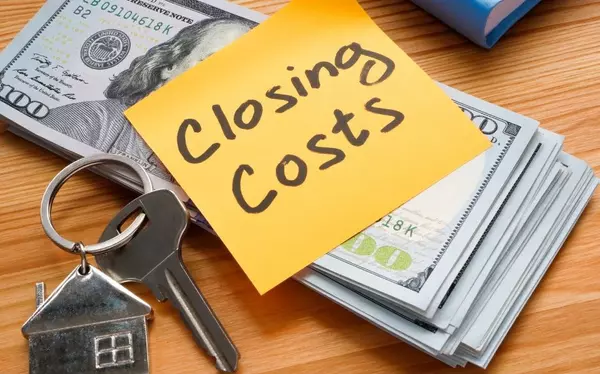How to Prepare Financially When Buying a House

How to Prepare Financially When Buying a House
Purchasing a home is a significant financial commitment, and proper preparation is crucial to ensuring a smooth process. Before diving into the real estate market, assess your financial health by checking your credit score and evaluating your savings. Budgeting effectively and understanding the total cost of homeownership, including hidden expenses, will help you set a realistic price range. This blog will guide you through essential steps to prepare financially, from improving your credit to exploring mortgage options, ensuring you’re well-equipped for this major investment.
Key Takeaways:
- Assess Your Financial Health: Start by understanding your credit score and improving it if necessary. A strong credit score is crucial for obtaining favorable mortgage rates. Evaluate your savings to ensure you can cover a substantial down payment, ideally 20% of the home’s price, to avoid private mortgage insurance (PMI).
- Budget Wisely: Calculate your debt-to-income (DTI) ratio and use mortgage calculators to determine how much house you can afford. Factor in additional costs such as closing fees, moving expenses, and ongoing home maintenance to set a realistic budget.
- Explore Financing Options: Familiarize yourself with different mortgage types, including fixed-rate, adjustable-rate, and government-backed loans. Obtain mortgage pre-approval to strengthen your buying position and streamline the home-buying process.
- Build a Strong Financial Profile: Focus on reducing high-interest debt and consider increasing your income through side jobs or negotiating a raise. A robust financial profile improves your mortgage application and overall financial stability.
- Plan for the Future: Establish an emergency fund to cover unexpected expenses and ensure financial stability. Review and secure appropriate insurance coverage, including homeowners, mortgage, and life insurance, to protect your investment and family.
- Seek Professional Advice: Work with a financial advisor to optimize your financial strategy and a real estate agent to navigate the housing market, negotiate terms, and manage the buying process effectively.
Assessing Your Financial Health
Understanding Your Credit Score
A strong credit score is vital when buying a house, as it directly impacts your mortgage rates and loan approval chances. A high credit score can qualify you for better interest rates, potentially saving you thousands over the life of your loan. To check your credit score, you can use free online tools or request a report from major credit bureaus like Equifax, Experian, and TransUnion. If your score needs improvement, focus on paying down existing debts, making timely payments, and avoiding new credit inquiries. Regularly reviewing your credit report helps ensure accuracy and address any discrepancies.
Evaluating Your Savings
A substantial down payment is crucial for home buying, typically ranging from 5% to 20% of the home's price. The larger your down payment, the lower your monthly mortgage payments and the less you’ll pay in interest over time. Aim to save at least 20% to avoid private mortgage insurance (PMI), which can add to your monthly costs. To build your savings, consider setting up automatic transfers to a dedicated savings account, reducing discretionary spending, and taking advantage of any employer savings programs or bonuses. Establishing a clear savings plan and budgeting for unexpected expenses will strengthen your financial readiness for homeownership.
Budgeting for Homeownership
Determining How Much House You Can Afford
Before buying a home, it’s essential to determine what you can realistically afford. Start by calculating your debt-to-income (DTI) ratio, which compares your monthly debt payments to your gross monthly income. Lenders typically recommend a DTI ratio of 36% or less, including your mortgage payment. Utilize online mortgage calculators to estimate monthly payments based on different home prices and interest rates. Setting a realistic budget involves not only considering your monthly mortgage but also factoring in property taxes, insurance, and utilities. Ensure that your budget accommodates your current lifestyle while leaving room for future expenses.
Considering Additional Costs
Beyond the mortgage, there are several additional costs to account for when buying a home. Closing costs, which can range from 2% to 5% of the home's purchase price, include fees for appraisal, inspection, and title insurance. Moving expenses, including professional movers or rental trucks, can also add up. Additionally, budget for ongoing home maintenance and unexpected repairs, which can be substantial. Setting aside a maintenance fund can help cover these costs and ensure you're prepared for issues such as plumbing repairs or roof maintenance. By considering these additional costs upfront, you’ll avoid surprises and maintain financial stability throughout your homeownership journey.
Exploring Financing Options
Types of Mortgages
When financing a home, understanding the different mortgage types is crucial. Fixed-rate mortgages offer stability with consistent monthly payments and a fixed interest rate over the life of the loan, usually 15 or 30 years. In contrast, adjustable-rate mortgages (ARMs) feature variable interest rates that can change periodically, which might result in lower initial payments but potential rate increases over time. Government-backed loans, such as FHA, VA, and USDA loans, are designed to help specific groups, like first-time buyers or veterans, with lower down payment requirements and favorable terms. Conventional loans, not insured by the government, often require a higher credit score but can offer competitive rates and terms.
Getting Pre-Approved for a Mortgage
Mortgage pre-approval is a critical step in the home-buying process, offering several benefits. It provides a clearer picture of what you can afford, making your offer more attractive to sellers and potentially speeding up the closing process. To get pre-approved, start by gathering essential documents, including proof of income, recent bank statements, and tax returns. Your lender will assess these documents to determine your loan amount and interest rate. The pre-approval process typically involves a credit check and a detailed review of your financial situation. By obtaining pre-approval, you gain a competitive edge and can proceed with greater confidence in your home search.
Building a Strong Financial Profile
Reducing Debt
Maintaining low debt levels is essential for a strong financial profile, especially when preparing to buy a home. High debt can impact your credit score and reduce the amount you can borrow. Prioritize paying off high-interest debts, such as credit card balances, to free up your budget and improve your creditworthiness. Strategies to reduce debt include creating a debt repayment plan, consolidating loans for lower interest rates, and making extra payments towards principal balances. By systematically tackling your debts, you'll improve your financial health and enhance your mortgage application’s attractiveness to lenders.
Increasing Your Income
Boosting your income can significantly impact your financial readiness for homeownership. Exploring side jobs or additional income streams, such as freelance work or part-time gigs, can provide extra funds to support your home-buying goals. Additionally, consider negotiating a raise or promotion at your current job. Demonstrating your value to your employer and highlighting your contributions can strengthen your case for higher pay. Increasing your income not only improves your ability to save for a down payment but also strengthens your mortgage application by showcasing financial stability and the capacity to manage monthly payments effectively.
Planning for Future Financial Stability
Creating an Emergency Fund
Establishing an emergency fund is a critical step in securing your financial future, especially when buying a home. An emergency fund acts as a safety net, providing financial stability in the event of unexpected expenses or emergencies, such as job loss or major home repairs. Try to build up your emergency savings to three to six months' worth of living expenses. This amount ensures that you have adequate coverage in case of unforeseen circumstances. To build your fund, set up automatic transfers to a dedicated savings account, cut back on non-essential expenses, and use any extra income or bonuses to contribute. Consistency and discipline in saving will help you reach your goal and maintain financial peace of mind.
Insurance Considerations
Insurance plays a crucial role in protecting your financial well-being as a homeowner. Homeowners insurance is essential, covering damage to your property from events like fire, theft, or natural disasters, and providing liability protection in case of accidents on your property. Mortgage insurance may be required if your down payment is less than 20% of the home’s price, protecting the lender in case of default. Lastly, consider life insurance to safeguard your family’s financial future. A life insurance policy ensures that your mortgage and other financial obligations are covered in the event of your passing. Reviewing your insurance needs regularly and adjusting your coverage as necessary will help ensure that you and your family remain protected and financially secure.
Seeking Professional Advice
Working with a Financial Advisor
Consulting with a financial advisor can be a game-changer when preparing to buy a home. Professional financial advice helps you navigate complex decisions and optimize your financial strategy, from budgeting and saving to understanding loan options and investment planning. A financial advisor can offer personalized guidance based on your unique financial situation, helping you set realistic goals and create a comprehensive plan to achieve them. When choosing a financial advisor, look for credentials like Certified Financial Planner (CFP) and consider their experience, reputation, and client reviews. Ensure their services align with your needs and that they have a transparent fee structure to avoid unexpected costs.
Consulting with a Real Estate Agent
Partnering with a real estate agent is crucial for a successful home-buying experience. A knowledgeable realtor brings expertise in the housing market, local neighborhoods, and current market trends, which can be invaluable when finding the right property and negotiating terms. An experienced agent can also help you understand the nuances of contracts, navigate the buying process, and manage paperwork. They provide access to a network of professionals, such as mortgage lenders and home inspectors, and offer valuable insights into property values and market conditions. By leveraging a realtor’s expertise, you can make informed decisions and streamline the home-buying process, ultimately saving time and reducing stress.
Conclusion
Preparing financially for buying a house is a multi-faceted process that requires careful planning and consideration. Start by assessing your financial health, including understanding your credit score and evaluating your savings, to ensure you are in a strong position to make a purchase. Budgeting effectively involves determining how much you can afford and accounting for additional costs like closing fees and maintenance. Explore various financing options to find the best mortgage type for your situation and seek pre-approval to strengthen your buying position.
Building a robust financial profile through debt reduction and increasing income can enhance your ability to manage mortgage payments and save for a down payment. Planning for future stability with an emergency fund and appropriate insurance coverage is also crucial for long-term financial security. Finally, consulting with a financial advisor and a real estate agent will provide expert guidance and support throughout the home-buying journey. By following these steps, you’ll be well-prepared to make informed decisions and achieve your homeownership goals with confidence.
Categories
Recent Posts










